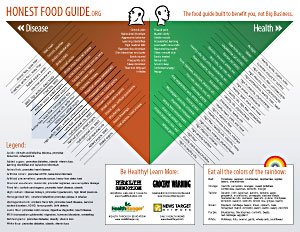HOME > ARCHIVES & ARTICLES ON ALTERNATIVE HEALERS > COMPANY BLOG > OPT IN/OPT OUT

Dear Readers,
 My trip to The Optimum Health Institute was an enjoyable journey, filled with rest, daily awareness classes, exercise and what they are known best for, a cleansing diet of raw whole foods. The body will respond to healing and balance if you give it what it needs; whole nutrition and light eating. You would be surprised at how little food the body truly needs to run efficiently and happily. When the body is not busy digesting food it has time and the intelligence to go to work on other areas, like tender joints congested with toxins from our food and environment. My sweetest gift from this experience is the knowledge that the only diet is the diet of self-love; and when we have that in place in our lives we honor, care and faithfully maintain our dwelling for all the right reasons. My trip to The Optimum Health Institute was an enjoyable journey, filled with rest, daily awareness classes, exercise and what they are known best for, a cleansing diet of raw whole foods. The body will respond to healing and balance if you give it what it needs; whole nutrition and light eating. You would be surprised at how little food the body truly needs to run efficiently and happily. When the body is not busy digesting food it has time and the intelligence to go to work on other areas, like tender joints congested with toxins from our food and environment. My sweetest gift from this experience is the knowledge that the only diet is the diet of self-love; and when we have that in place in our lives we honor, care and faithfully maintain our dwelling for all the right reasons.
 We have been watching several public health issues lately, and some disturbing yet welcome news has just surfaced we want you to know about: Last month, the FDA made a low-key announcement that some soft drinks were found to contain four times the acceptably safe levels of benzene. Benzene is so toxic it is considered dangerous at levels over 4 PPB--that's four parts per billion. Some soft drinks have levels at 10-20 ppb. Even "relatively short periods" of exposure at that level can "potentially cause temporary nervous system disorders, immune system depression [and] anemia," according to the FDA. A lifetime of exposure, says the EPA, can cause "chromosome aberrations [and] cancer." We have been watching several public health issues lately, and some disturbing yet welcome news has just surfaced we want you to know about: Last month, the FDA made a low-key announcement that some soft drinks were found to contain four times the acceptably safe levels of benzene. Benzene is so toxic it is considered dangerous at levels over 4 PPB--that's four parts per billion. Some soft drinks have levels at 10-20 ppb. Even "relatively short periods" of exposure at that level can "potentially cause temporary nervous system disorders, immune system depression [and] anemia," according to the FDA. A lifetime of exposure, says the EPA, can cause "chromosome aberrations [and] cancer."

 Chemists determined that the benzene was caused by a chemical reaction between the preservative sodium benzoate and ascorbic acid (Vitamin C). The effect was found to be especially prevalent in diet sodas, and shot up to even higher levels after products were subjected to extremes of heat and light. According to the documents, Cadbury-Schweppes' Diet Crush was found to contain benzene at 25 parts per billion (ppb). After exposure to 16 hours of ultraviolet light at temperatures around 30 C (86 F), that level jumped to a whopping 82 ppb. Diet Slice (made by Pepsi) contained 1 ppb before exposure, and 41.5 ppb after exposure. Diet Minute Maid (made by Coca-Cola) contained less than 0.5 ppb before exposure and 4.5 ppb afterwards (read AlterNet's full article). Chemists determined that the benzene was caused by a chemical reaction between the preservative sodium benzoate and ascorbic acid (Vitamin C). The effect was found to be especially prevalent in diet sodas, and shot up to even higher levels after products were subjected to extremes of heat and light. According to the documents, Cadbury-Schweppes' Diet Crush was found to contain benzene at 25 parts per billion (ppb). After exposure to 16 hours of ultraviolet light at temperatures around 30 C (86 F), that level jumped to a whopping 82 ppb. Diet Slice (made by Pepsi) contained 1 ppb before exposure, and 41.5 ppb after exposure. Diet Minute Maid (made by Coca-Cola) contained less than 0.5 ppb before exposure and 4.5 ppb afterwards (read AlterNet's full article).
 According to a recent survey, fifty-six percent of 8-year-olds down soft drinks daily, and a third of teenage boys drink at least three cans of soda pop per day. As parents become more aware and the alarm spreads, soft drink sales have hit a 20-year low, and rightly so, replaced by sports drinks and designer waters. According to a recent survey, fifty-six percent of 8-year-olds down soft drinks daily, and a third of teenage boys drink at least three cans of soda pop per day. As parents become more aware and the alarm spreads, soft drink sales have hit a 20-year low, and rightly so, replaced by sports drinks and designer waters.
 Dr. Mercola has campaigned against soft drink consumption for many years, and this past month has summarized his concerns in his article, "The Amazing Statistics and Dangers of Soda Pop." It will give you some ammunition to use against the soda pop addicts you may know and care about. Dr. Mercola has campaigned against soft drink consumption for many years, and this past month has summarized his concerns in his article, "The Amazing Statistics and Dangers of Soda Pop." It will give you some ammunition to use against the soda pop addicts you may know and care about.
In vibrant health,


Shay Arave
President
Pure Energy Rx
 Our resident Life Coach and Synergy Specialist, Charly Emery, in her series, "Manifest What You Dream of Today," extolls the value of creating space for your goals. A good wish list with intention and determination is one of the most powerful forces in the universe. The trick is to make sure you fully believe that the items on the wish list are what you truly want. "Once you can appreciate the various avenues you can activate to manifest what you want, along with all the different ways they can materialize, you will be excited about having an open mind and seeing how magically things begin to come together and transform..." >>> MORE
Our resident Life Coach and Synergy Specialist, Charly Emery, in her series, "Manifest What You Dream of Today," extolls the value of creating space for your goals. A good wish list with intention and determination is one of the most powerful forces in the universe. The trick is to make sure you fully believe that the items on the wish list are what you truly want. "Once you can appreciate the various avenues you can activate to manifest what you want, along with all the different ways they can materialize, you will be excited about having an open mind and seeing how magically things begin to come together and transform..." >>> MORE
|
F.Y.I. - Interesting Health News Tidbits
|
Comfort for Mars, comfort for Venus...

 According to a recent study in Physiology and Behavior, the term "comfort food" has different meanings for men and women. Women--no surprise here--would rather reach for sweets when they're feeling blue. But it turns out that men prefer meat, or other protein-rich foods to comfort them. And, unlike women, men tend to eat these types of food when they're at their happiest, not their lowest, points. So while women use food to alleviate stress, sadness, and other negative emotions, men use food to increase their pleasure and positive emotions. The findings were based on a survey of 277 men and women in Montreal, Canada. According to a recent study in Physiology and Behavior, the term "comfort food" has different meanings for men and women. Women--no surprise here--would rather reach for sweets when they're feeling blue. But it turns out that men prefer meat, or other protein-rich foods to comfort them. And, unlike women, men tend to eat these types of food when they're at their happiest, not their lowest, points. So while women use food to alleviate stress, sadness, and other negative emotions, men use food to increase their pleasure and positive emotions. The findings were based on a survey of 277 men and women in Montreal, Canada.
 The study also found that males and females had different reactions once they had eaten their comfort foods. Who was the most satisfied? Men and older adults felt the best after eating. But while they said they felt better once they indulged, women also reported feelings of guilt over the calorie-rich foods they had consumed. The study also found that males and females had different reactions once they had eaten their comfort foods. Who was the most satisfied? Men and older adults felt the best after eating. But while they said they felt better once they indulged, women also reported feelings of guilt over the calorie-rich foods they had consumed.
 In yet another twist, though, the researchers did find that foods with fewer calories and less fat could also increase happiness and concluded that a salad or a piece of fruit could serve as alternatives to the cake or steak debate. >>> FULL ARTICLE In yet another twist, though, the researchers did find that foods with fewer calories and less fat could also increase happiness and concluded that a salad or a piece of fruit could serve as alternatives to the cake or steak debate. >>> FULL ARTICLE
Happy 1000th birthday...

 [Reuters] - Modern medicine is redefining old age and may soon allow people to live regularly beyond the current upper limit of 120 years, experts said last week. It used to be thought there was some built-in limit on lifespan, but a group of scientists meeting at Oxford University for a conference on life extension and enhancement consigned that idea to the dustbin.
[Reuters] - Modern medicine is redefining old age and may soon allow people to live regularly beyond the current upper limit of 120 years, experts said last week. It used to be thought there was some built-in limit on lifespan, but a group of scientists meeting at Oxford University for a conference on life extension and enhancement consigned that idea to the dustbin.
 Paul Hodge, director of the Harvard Generations Policy Program, said governments around the world--struggling with pension crises, greying workforces and rising healthcare costs--had to face up to the challenge now. "Life expectancy is going to grow significantly, and current policies are going to be proven totally inadequate," he predicted. Paul Hodge, director of the Harvard Generations Policy Program, said governments around the world--struggling with pension crises, greying workforces and rising healthcare costs--had to face up to the challenge now. "Life expectancy is going to grow significantly, and current policies are going to be proven totally inadequate," he predicted.
 Just how far and fast life expectancy will increase is open to debate, but the direction and the accelerating trend is clear. Richard Miller of the Michigan University Medical School said tests on mice and rats--genetically very similar to humans--showed lifespan could be extended by 40 percent, simply by limiting calorie consumption. Translated into humans, that would m mean average life expectancy in rich countries rising from near 80 to 112 years, with many individuals living a lot longer. Just how far and fast life expectancy will increase is open to debate, but the direction and the accelerating trend is clear. Richard Miller of the Michigan University Medical School said tests on mice and rats--genetically very similar to humans--showed lifespan could be extended by 40 percent, simply by limiting calorie consumption. Translated into humans, that would m mean average life expectancy in rich countries rising from near 80 to 112 years, with many individuals living a lot longer.
 Aubrey de Grey, a biomedical gerontologist from Cambridge University, goes much further. He believes the first person to live to 1,000 has already been born and told the meeting that periodic repairs to the body using stem cells, gene therapy and other techniques could eventually stop the aging process entirely. De Grey argues that if each repair lasts 30 or 40 years, science will advance enough by the next "service" date that death can be put off indefinitely--a process he calls strategies for engineered negligible senescence. Aubrey de Grey, a biomedical gerontologist from Cambridge University, goes much further. He believes the first person to live to 1,000 has already been born and told the meeting that periodic repairs to the body using stem cells, gene therapy and other techniques could eventually stop the aging process entirely. De Grey argues that if each repair lasts 30 or 40 years, science will advance enough by the next "service" date that death can be put off indefinitely--a process he calls strategies for engineered negligible senescence.
 His maverick ideas are dismissed by others in the field, such as Tom Kirkwood, director of Newcastle University's Center of Aging and Nutrition, as little more than a thought experiment. Kirkwood said the human aging process was intrinsically malleable--meaning life expectancy was not set in stone--but researchers had only scratched the surface in understanding how it worked. The real goal is not simply longer life but longer healthy life, something that is starting to happen as today's over-70s lead far more active lives than previous generations. His maverick ideas are dismissed by others in the field, such as Tom Kirkwood, director of Newcastle University's Center of Aging and Nutrition, as little more than a thought experiment. Kirkwood said the human aging process was intrinsically malleable--meaning life expectancy was not set in stone--but researchers had only scratched the surface in understanding how it worked. The real goal is not simply longer life but longer healthy life, something that is starting to happen as today's over-70s lead far more active lives than previous generations.
 Jay Olshansky of the University of Illinois in Chicago is confident that longevity and health will go hand in hand and that delaying aging will translate into later onset for diseases like cancer, Alzheimer's and heart disease. But to get to the bottom of understanding the biology of aging will require a major step-up in investment. Olshansky and his colleagues have called on the U.S. government to inject $3 billion a year into the field, arguing the benefits of achieving an average seven-year delay in the process of biological aging would far exceed the gains from eliminating cancer. Ethically, the extension of life is controversial, with some philosophers arguing it goes against fundamental human nature. But John Harris, professor of bioethics at the University of Manchester, said any society that applauded the saving of life had a duty to embrace regenerative medicine. "Life-saving is just death-postponing with a positive spin," he said. "If it is right and good to postpone death for a short time, it is hard to see how it would be less right and less good to postpone it for a long while." >>> FULL ARTICLE Jay Olshansky of the University of Illinois in Chicago is confident that longevity and health will go hand in hand and that delaying aging will translate into later onset for diseases like cancer, Alzheimer's and heart disease. But to get to the bottom of understanding the biology of aging will require a major step-up in investment. Olshansky and his colleagues have called on the U.S. government to inject $3 billion a year into the field, arguing the benefits of achieving an average seven-year delay in the process of biological aging would far exceed the gains from eliminating cancer. Ethically, the extension of life is controversial, with some philosophers arguing it goes against fundamental human nature. But John Harris, professor of bioethics at the University of Manchester, said any society that applauded the saving of life had a duty to embrace regenerative medicine. "Life-saving is just death-postponing with a positive spin," he said. "If it is right and good to postpone death for a short time, it is hard to see how it would be less right and less good to postpone it for a long while." >>> FULL ARTICLE
Diet is all about eating...

 More than half of all adults in America are overweight or obese, and for years they have been programmed to cut calories, reduce fat and minimize portion size in order to lose weight. More than half of all adults in America are overweight or obese, and for years they have been programmed to cut calories, reduce fat and minimize portion size in order to lose weight.
 While helpful, these tactics leave out one critical element: satisfaction. Jenny Craig has always considered satiety as a part of a successful program and is now partnering with Barbara Rolls Ph.D, professor and nutrition researcher at Pennsylvania State University, on a cookbook, The Volumetrics Cookbook for Jenny Craig. This first of its kind cookbook offers more than 50 delicious recipes for staying satisfied on fewer calories. While helpful, these tactics leave out one critical element: satisfaction. Jenny Craig has always considered satiety as a part of a successful program and is now partnering with Barbara Rolls Ph.D, professor and nutrition researcher at Pennsylvania State University, on a cookbook, The Volumetrics Cookbook for Jenny Craig. This first of its kind cookbook offers more than 50 delicious recipes for staying satisfied on fewer calories.
 Volumetrics is an approach to eating that empowers and encourages readers to quit "dieting" for good, to feel full on fewer calories, and maintain weight loss while eating satisfying portions of delicious, nutritious foods. It is based on Dr. Rolls' own research on satiety that shows how to choose foods that satisfy hunger while losing weight, without eliminating favorite foods or following restrictive rules. The absence of satiety is one reason most diets don't work very well or for very long. Volumetrics is an approach to eating that empowers and encourages readers to quit "dieting" for good, to feel full on fewer calories, and maintain weight loss while eating satisfying portions of delicious, nutritious foods. It is based on Dr. Rolls' own research on satiety that shows how to choose foods that satisfy hunger while losing weight, without eliminating favorite foods or following restrictive rules. The absence of satiety is one reason most diets don't work very well or for very long.
 "'Eat less' is not always the best message. You need to guide people to the best food choices to help them balance their calorie intake," says Barbara Rolls, Ph.D., renowned for her nutrition research on appetite and author of The Volumetrics Weight-Control Plan, and The Volumetrics Eating Plan. "It's learning how to eat satisfying portions while managing your weight--and as a bonus, eating foods that are good for you." "'Eat less' is not always the best message. You need to guide people to the best food choices to help them balance their calorie intake," says Barbara Rolls, Ph.D., renowned for her nutrition research on appetite and author of The Volumetrics Weight-Control Plan, and The Volumetrics Eating Plan. "It's learning how to eat satisfying portions while managing your weight--and as a bonus, eating foods that are good for you."
 Volumetrics is an eating plan based on the latest research on how to control hunger while managing calories to lose weight or maintaining current weight. The plan is a practical guide to nutritious and satisfying foods that will help to establish habits associated with eating well for optimal health. Key principles and techniques of Volumetrics: Volumetrics is an eating plan based on the latest research on how to control hunger while managing calories to lose weight or maintaining current weight. The plan is a practical guide to nutritious and satisfying foods that will help to establish habits associated with eating well for optimal health. Key principles and techniques of Volumetrics:
- Focus on what you can eat, not what you must give up.
- Emphasize the only proven way to lose weight is to eat fewer calories than your body uses as fuel for your activities.
- Stress that when you are managing calories it is more important than ever to eat a good balance of foods and nutrients.
- Teach you to make food choices that will help control hunger and enhance satiety.
- Show you how to incorporate your favorite foods into your diet.
- Reinforce eating and activity patterns that you can sustain for a lifetime of achieving your own healthy weight.
>>> FULL ARTICLE
Organic diets keep kids pesticide free...

 WASHINGTON - Children who switched their diets for only a few days to organic foods dramatically and immediately lowered the amount of toxic pesticides in their bodies, researchers report. Lead author Chensheng Lu of Emory University found that when kids eat organic foods, pesticides in their body plummet to undetectable levels--even when following the diet for only five days. "An organic diet does provide protective measures for pesticide exposure in kids," said Lu, who presented his research at a panel at the American Association for the Advancement of Science meeting in St. Louis. His study appeared in the journal Environmental Health Perspectives. WASHINGTON - Children who switched their diets for only a few days to organic foods dramatically and immediately lowered the amount of toxic pesticides in their bodies, researchers report. Lead author Chensheng Lu of Emory University found that when kids eat organic foods, pesticides in their body plummet to undetectable levels--even when following the diet for only five days. "An organic diet does provide protective measures for pesticide exposure in kids," said Lu, who presented his research at a panel at the American Association for the Advancement of Science meeting in St. Louis. His study appeared in the journal Environmental Health Perspectives.
 Lu designed a novel intervention study by substituting organic foods into the diets of 23 elementary school children in the Seattle area. All the kids, who were aged 3 to 11, had metabolites (evidence of pesticides) in their urine at the study's start. But as soon as they began eating organic foods, the concentration of metabolites dropped to essentially zero. Once they returned to their conventional diet, the pesticides levels bounced back up. Lu designed a novel intervention study by substituting organic foods into the diets of 23 elementary school children in the Seattle area. All the kids, who were aged 3 to 11, had metabolites (evidence of pesticides) in their urine at the study's start. But as soon as they began eating organic foods, the concentration of metabolites dropped to essentially zero. Once they returned to their conventional diet, the pesticides levels bounced back up.
 The parents were given shopping lists to buy organic vegetables, fruits and juices, as well as wheat and corn products. Meat and dairy products were left out, Lu said, because these foods don't usually have pesticide residues. The parents fed their children organic foods for five consecutive days during a 15-day study period. The researchers evaluated the kids four times over the course of a year by analyzing their urine and saliva. The parents were given shopping lists to buy organic vegetables, fruits and juices, as well as wheat and corn products. Meat and dairy products were left out, Lu said, because these foods don't usually have pesticide residues. The parents fed their children organic foods for five consecutive days during a 15-day study period. The researchers evaluated the kids four times over the course of a year by analyzing their urine and saliva.
 Lu said he is confident that the pesticide reductions can be attributed to the kids' diet, because the particular class of pesticides studied, called organophosphorus pesticides, or OPs, are not found in households. The kids ingested these pesticides from eating conventional foods, and not from playing in grass treated with chemicals, for example. Although this study to some degree proves the obvious--pesticide-free foods create pesticide-free children--co-author Richard Fenske at the University of Washington says he was impressed by the magnitude of difference in the results. Lu said he is confident that the pesticide reductions can be attributed to the kids' diet, because the particular class of pesticides studied, called organophosphorus pesticides, or OPs, are not found in households. The kids ingested these pesticides from eating conventional foods, and not from playing in grass treated with chemicals, for example. Although this study to some degree proves the obvious--pesticide-free foods create pesticide-free children--co-author Richard Fenske at the University of Washington says he was impressed by the magnitude of difference in the results.
 The Environmental Protection Agency warns children may be sensitive to pesticides because their excretory systems are not developed enough to excrete pesticides, and that in relation to their body weight, kids eat and drink more than adults. Currently, researchers are studying whether conditions like attention deficit disorder, lowered IQs, Alzheimer's disease and Parkinson's disease can be linked to early exposure to pesticides. Children are most vulnerable to pesticides from formation of the fetus up to 2 years of age. The Environmental Protection Agency warns children may be sensitive to pesticides because their excretory systems are not developed enough to excrete pesticides, and that in relation to their body weight, kids eat and drink more than adults. Currently, researchers are studying whether conditions like attention deficit disorder, lowered IQs, Alzheimer's disease and Parkinson's disease can be linked to early exposure to pesticides. Children are most vulnerable to pesticides from formation of the fetus up to 2 years of age.
 Lu emphasized children also get exposed in other outlets, for example around the home or in public sports fields, where pesticides are often oversprayed. "You have to accept the fact a farmer needs to use pesticides to have healthy crops for harvest, but is it really necessary for parents to use pesticides around the home?" he asked. >>> FULL ARTICLE Lu emphasized children also get exposed in other outlets, for example around the home or in public sports fields, where pesticides are often oversprayed. "You have to accept the fact a farmer needs to use pesticides to have healthy crops for harvest, but is it really necessary for parents to use pesticides around the home?" he asked. >>> FULL ARTICLE
The Honest Food Guide...
by Mike Adams, Health Ranger

 Confused about what you're supposed to eat? That's because most nutritional advice comes sources that have sold their souls to the giant food companies. Even the USDA's Food Guide Pyramid is heavily influenced by food lobbyists, and it offers lousy nutritional advice that's decades behind the cutting-edge nutritional principles we now know to be true. If you want a REAL guide to which foods you should eat, check out my Honest Food Guide, an easy-to-use nutritional reference chart that will help you make the best choices at every meal. The "Honest Food Guide" is based on real nutrition, not politics or special interest groups, and it illustrates the nutritional principles that will keep you healthy for life. Because this information will help you live a healthier lifestyle, I'm giving away downloadable copies at www.HonestFoodGuide.org. The "Honest Food Guide" provides information like: Confused about what you're supposed to eat? That's because most nutritional advice comes sources that have sold their souls to the giant food companies. Even the USDA's Food Guide Pyramid is heavily influenced by food lobbyists, and it offers lousy nutritional advice that's decades behind the cutting-edge nutritional principles we now know to be true. If you want a REAL guide to which foods you should eat, check out my Honest Food Guide, an easy-to-use nutritional reference chart that will help you make the best choices at every meal. The "Honest Food Guide" is based on real nutrition, not politics or special interest groups, and it illustrates the nutritional principles that will keep you healthy for life. Because this information will help you live a healthier lifestyle, I'm giving away downloadable copies at www.HonestFoodGuide.org. The "Honest Food Guide" provides information like:
- Which common food ingredients promote diabetes
- Which foods promote mental disorders and depression
- How to avoid hydrogenated oils
- Which grocery products and foods promote outstanding health
- Why high-sodium snacks are harmful to your health
- Where to find healthy protein
- Mineral-rich supplements to add to your diet
- How MSG interferes with body function and appetite control
- What foods to add to your diet for a strong immune system
- Why breakfast cereals are often health saboteurs
- How to ensure you're getting enough healthy oils
- Why sunlight is vital for good health
- Key nutrients for good health
- How to select vegetables with a variety of nutrients
- Healing superfoods
- How to achieve clear, smooth skin
- Which carbs to eat and which to avoid
... and much more. If you want the straight truth about which foods to consume and which
foods to avoid, download the Honest Food Guide today.
 Don't microwave that plastic wrap...
Don't microwave that plastic wrap...

 Millions of people still use PVC wrap when cooking food in microwaves or storing meats and cheeses in the refrigerator, but there are dangers in using PVC food wrap because of the toxins contained in the popular plastic. Johns Hopkins and the People's Republic of China have recently issued statements about the toxins found in PVC food wrap, and Wal-Mart recently reported that the company would seek out alternatives to PVC cling wrap. When PVC (polyvinyl chloride), is manufactured or subjected to high heat, the chlorine in it can chemically combine with organic materials, producing deadly byproducts known as dioxins. These dioxins can run off or leach from the PVC into the food. Dioxins are known to cause cancer, immune suppression, and birth defects in animals. The Environmental Protection Agency recently found that the cancer risk to the general population from dioxin, one of the most toxic chemicals known to man, is now as high as one in one hundred people. One of the more widely used additives that makes PVC soft is di-2-ethylhexyl phthalate (DEHP), a toxic chemical that has been associated with damage to the liver, ovaries, heart, kidneys, and lungs. Exposure to these additives and harmful plasticizers is not only through microwave cooking, but also through food wrapped in PVC cling wrap. Many meats, cheeses and other foods sold in delis and grocery stores are wrapped in PVC, and scientists have found evidence of toxic additives leaching off PVC into the food. Food wrap should not be used when cooking food in microwaves. Instead, you can keep your family safe by covering food with a plain white paper towel or use Corning Ware glass when cooking in a microwave. (Thanks to KeelyNet) >>> SOURCE Millions of people still use PVC wrap when cooking food in microwaves or storing meats and cheeses in the refrigerator, but there are dangers in using PVC food wrap because of the toxins contained in the popular plastic. Johns Hopkins and the People's Republic of China have recently issued statements about the toxins found in PVC food wrap, and Wal-Mart recently reported that the company would seek out alternatives to PVC cling wrap. When PVC (polyvinyl chloride), is manufactured or subjected to high heat, the chlorine in it can chemically combine with organic materials, producing deadly byproducts known as dioxins. These dioxins can run off or leach from the PVC into the food. Dioxins are known to cause cancer, immune suppression, and birth defects in animals. The Environmental Protection Agency recently found that the cancer risk to the general population from dioxin, one of the most toxic chemicals known to man, is now as high as one in one hundred people. One of the more widely used additives that makes PVC soft is di-2-ethylhexyl phthalate (DEHP), a toxic chemical that has been associated with damage to the liver, ovaries, heart, kidneys, and lungs. Exposure to these additives and harmful plasticizers is not only through microwave cooking, but also through food wrapped in PVC cling wrap. Many meats, cheeses and other foods sold in delis and grocery stores are wrapped in PVC, and scientists have found evidence of toxic additives leaching off PVC into the food. Food wrap should not be used when cooking food in microwaves. Instead, you can keep your family safe by covering food with a plain white paper towel or use Corning Ware glass when cooking in a microwave. (Thanks to KeelyNet) >>> SOURCE
Cocoa keeps you going...

 In a group of elderly men, those who consumed the most cocoa had a 50 percent lower risk of dying from heart disease or any cause compared to those who did not drink cocoa or eat cocoa-containing foods. Cocoa is known to lower blood pressure but this may not be the whole reason. Instead, antioxidants and flavonols found in cocoa lessen the risks from cholesterol and other compounds that can cause heart attacks, cancer and lung diseases. Flavonols are a class of healthy flavonoids that are found in many vegetables, green tea and red wine. The 15-year study of 470 elderly men aged 65 to 84 in Zutphen, the Netherlands, found one-third did not eat any cocoa, while the median intake was 4 grams per day among the third who consumed the most cocoa. From 1985 to 2000, 314 of the men died, and the biggest cocoa eaters were at half the risk of dying compared to men who did not eat it. >>>> BUY SOME > MORE INFO
In a group of elderly men, those who consumed the most cocoa had a 50 percent lower risk of dying from heart disease or any cause compared to those who did not drink cocoa or eat cocoa-containing foods. Cocoa is known to lower blood pressure but this may not be the whole reason. Instead, antioxidants and flavonols found in cocoa lessen the risks from cholesterol and other compounds that can cause heart attacks, cancer and lung diseases. Flavonols are a class of healthy flavonoids that are found in many vegetables, green tea and red wine. The 15-year study of 470 elderly men aged 65 to 84 in Zutphen, the Netherlands, found one-third did not eat any cocoa, while the median intake was 4 grams per day among the third who consumed the most cocoa. From 1985 to 2000, 314 of the men died, and the biggest cocoa eaters were at half the risk of dying compared to men who did not eat it. >>>> BUY SOME > MORE INFO
|
Sponsored Links
[INFO ABOUT BECOMING A SPONSOR] |
|
|
..
|
Emotional Freedom Technique
A universal healing aid: Based on impressive new discoveries involving the body's subtle energies, EFT has been clinically effective in thousands of cases, often when nothing else will work. Trauma & Abuse, Panic & Anxiety, Fears & Phobias, Depression, Addictive Cravings, Children's Issues.
www.emofree.com
|
Gemisphere
Therapeutic gemstones for healing & awakening. Our therapeutic gemstone necklaces work on every level: body, mind, emotions and spirit, to produce consistent and powerful benefits for their users.
www.gemisphere.com
|
Spiritual Cinema Circle
As a Member of our Inner Circle, each month you'll receive a new DVD with four wonderful, entertaining movies that will enlighten and inspire your soul. The movies will be a mixture of features, shorts and documentaries, all handpicked for their quality and content. You can be assured that each month you'll see more inspiring, meaningful movies than you can find on T.V. or at the local cineplex.
www.spiritualcinemacircle.com
|
Are you taking your vitamin/mineral supplements in pill, tablet or powder form? Recent medical research may surprise you...
The Physicians' Desk Reference (PDR) - the medical community's most trusted natural supplement resource for 54 years, now reveals supplements in tablet, pill or powder form are only 3 to 10% absorbed by your body at best! This is costing you hard earned money and unrealized health benefits. Get the facts.
|
Essential Living Foods
Organic "lost crops" of Central and South America, permaculture, conscious consumerism.
www.essentiallivingfoods.com
|
Trinity Elixirs
Gemstone elixirs bio-energized with the Subtle Energy signature of some of the world's most magnificent specimens. Very potent. Check out the impressive photos of these tremendous gems!
gemelixirs.pureenergyrx.com
|
OxyBliss
Bioenergized jewelry, tools for higher consciousness, CDs and more!
www.oxybliss.com
|
| |
|
|
|

 Our resident Life Coach and Synergy Specialist, Charly Emery, in her series, "Manifest What You Dream of Today," extolls the value of creating space for your goals. A good wish list with intention and determination is one of the most powerful forces in the universe. The trick is to make sure you fully believe that the items on the wish list are what you truly want. "Once you can appreciate the various avenues you can activate to manifest what you want, along with all the different ways they can materialize, you will be excited about having an open mind and seeing how magically things begin to come together and transform..." >>> MORE
Our resident Life Coach and Synergy Specialist, Charly Emery, in her series, "Manifest What You Dream of Today," extolls the value of creating space for your goals. A good wish list with intention and determination is one of the most powerful forces in the universe. The trick is to make sure you fully believe that the items on the wish list are what you truly want. "Once you can appreciate the various avenues you can activate to manifest what you want, along with all the different ways they can materialize, you will be excited about having an open mind and seeing how magically things begin to come together and transform..." >>> MORE







